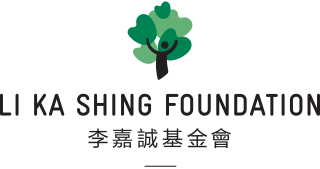The Ford Foundation is an American private foundation with the stated goal of advancing human welfare. Created in 1936 by Edsel Ford and his father Henry Ford, it was originally funded by a US$25,000 gift from Edsel Ford. By 1947, after the death of the two founders, the foundation owned 90% of the non-voting shares of the Ford Motor Company. Between 1955 and 1974, the foundation sold its Ford Motor Company holdings and now plays no role in the automobile company.

The Bill & Melinda Gates Foundation (BMGF) is an American private foundation founded by Bill Gates and Melinda French Gates. Based in Seattle, Washington, it was launched in 2000 and is reported to be the second largest charitable foundation in the world, holding $69 billion in assets as of 2020. The primary stated goals of the foundation are to enhance healthcare and reduce extreme poverty across the world, and to expand educational opportunities and access to information technology in the U.S. Key individuals of the foundation include Warren Buffett, chief executive officer Mark Suzman, and Michael Larson.
In the United States, federal grants are economic aid issued by the United States government out of the general federal revenue. A federal grant is an award of financial assistance from a federal agency to a recipient to carry out a public purpose of support or stimulation authorized by a law of the United States.
The William and Flora Hewlett Foundation, commonly known as the Hewlett Foundation, is a private foundation, established by Hewlett-Packard cofounder William Redington Hewlett and his wife Flora Lamson Hewlett in 1966. The Hewlett Foundation awards grants to a variety of liberal and progressive causes.
Matching funds are funds that are set to be paid in proportion to funds available from other sources. Matching fund payments usually arise in situations of charity or public good. The terms cost sharing, in-kind, and matching can be used interchangeably but refer to different types of donations.

The Atlantic Philanthropies (AP) was a private foundation created in 1982 by American businessman Chuck Feeney. The Atlantic Philanthropies focused its giving on health, social, and politically left-leaning public policy causes in Australia, Bermuda, Ireland, South Africa, the United States and Vietnam. It was among the largest foreign charitable donors in each of the countries in which it operated, and was the single largest funder of programs that encouraged the civic engagement of older people and of comprehensive immigration reform in the United States. With the single largest advocacy grant ever made by a foundation, the Atlantic Philanthropies committed $27 million to win passage of the Affordable Care Act in the United States. About half of the Atlantic Philanthropies' grants were made in donations that allow lobbying.
Lilly Endowment Inc., headquartered in Indianapolis, Indiana, is one of the world's largest private philanthropic foundations and among the largest endowments in the United States. It was founded in 1937 by Josiah K. Lilly Sr. and his sons, Eli Jr. and Josiah Jr. (Joe), with an initial gift of Eli Lilly and Company stock valued at $280,000 USD. As of 2020, its total assets were worth $21 billion.

The David and Lucile Packard Foundation is a private foundation that provides grants to not-for-profit organizations. It was created in 1964 by David Packard and his wife Lucile Salter Packard. Following David Packard's death in 1996, the Foundation became the beneficiary of part of his estate.

The Li Ka Shing Foundation is a Hong Kong-based charitable organization founded in 1980 by Hong Kong entrepreneur Li Ka-shing.

Knut and Alice Wallenberg Foundation (KAW) is a Swedish public and private foundation formed in 1917 by Knut Agathon Wallenberg and his wife Alice Wallenberg. It was created to support research in the natural sciences, technology and medicine by awarding long-term grants to basic research of the highest international class.
Foundation Asset ManagementAB is a Swedish asset management company, founded by the three largest Wallenberg foundations in order to manage their assets, by means of direct ownership as well as through management and consultancy agreements. The administration of these foundations and their donations is handled through a subsidiary. “Wallenberg foundations” is an informal collective name for the twenty different foundations founded by members of the Wallenberg family.

The Future of Life Institute (FLI) is a nonprofit organization which aims to steer transformative technology towards benefiting life and away from large-scale risks, with a focus on existential risk from advanced artificial intelligence (AI). FLI's work includes grantmaking, educational outreach, and advocacy within the United Nations, United States government, and European Union institutions.

Peter “Poker” Åke Wallenberg is a Swedish businessman, chair of eight of the sixteen public and private foundations formed by the Wallenberg family or established in memory of family members. The foundations, which are known collectively as the Wallenberg Foundations, annually award funding of approximately SEK 2.2 billion, largely for research and education at Swedish universities.

The Novo Nordisk Foundation is an international enterprise foundation focusing on medical treatment and research.

Climate Impacts Research Centre (CIRC) is a research institute based at the Department of ecology and environmental science (EMG) at Umeå University, Sweden, but primarily operative at Abisko Scientific Research Station which is run by the Swedish Polar Research Secretariat.
The John Templeton Foundation is a philanthropic organization that reflects the ideas of its founder, John Templeton. Templeton became wealthy as a contrarian investor, and wanted to support progress in religious and spiritual knowledge, especially at the intersection of religion and science. He also sought to fund research on methods to promote and develop moral character, intelligence, and creativity in people, and to promote free markets. In 2008, the foundation was awarded the National Humanities Medal. In 2016, Inside Philanthropy called it "the oddest—or most interesting—big foundation around."

The Stichting IKEA Foundation is a Dutch foundation founded in 1982 by Ingvar Kamprad, a Swedish billionaire and founder of IKEA. The foundation is funded by the Stichting INGKA Foundation. Initially focused on architecture and interior design, its scope expanded in 2009 to include "improving children's opportunities". In 2020, total grants disbursed by the foundation amounted to $220.67 million.
The Arcadia Fund is a UK charity organization founded by Lisbet Rausing and Professor Peter Baldwin. Established in 2001, the organization provides grants on a worldwide basis focusing on numerous projects outside the UK. The primary focus of the organization is to preserve endangered culture and nature and to provide open access. Its Mission statement outlines the organization's philosophical view to: "serve humanity (and) to preserve cultural heritage and ecosystems". The organization believes that "once memories, knowledge, skills, variety, and intricacy disappear – once the old complexities are lost – they are hard to replicate or replace" and consequently want to, "build a vibrant, resilient, green future".
The Wallenberg Foundations refers collectively to the 16 public and private foundations formed on the basis of donations from members of the Swedish Wallenberg family, or created with funds raised in honor of Wallenberg family members.
Wallenberg AI, Autonomous Systems and Software Program (WASP), launched in 2015, is Sweden’s largest individual research program.









